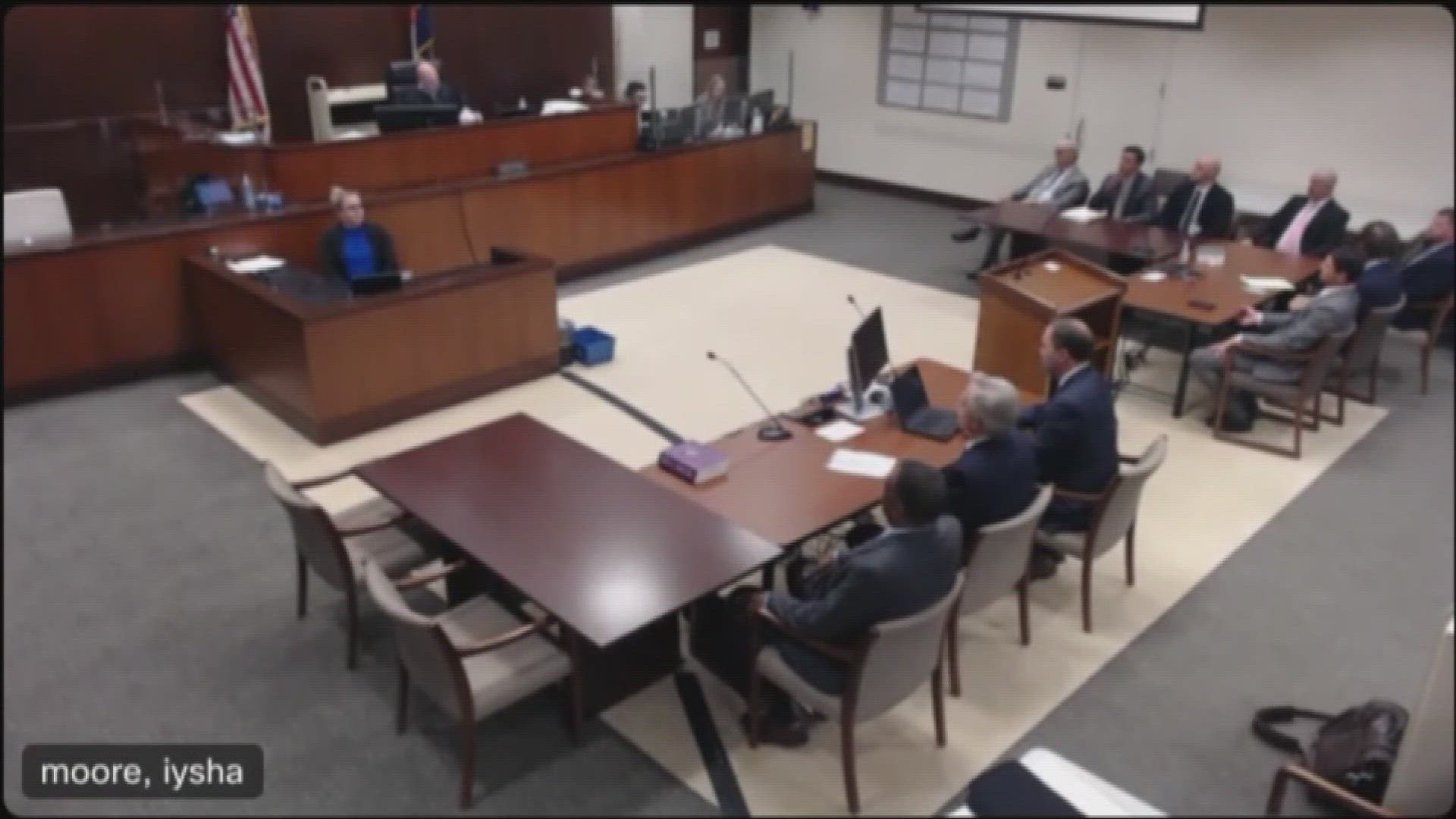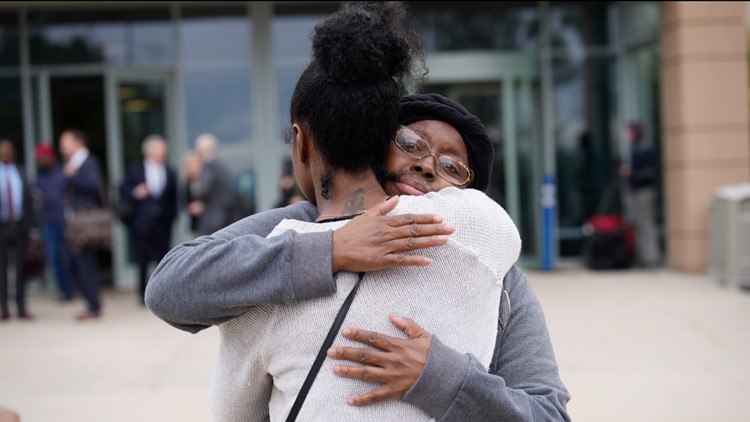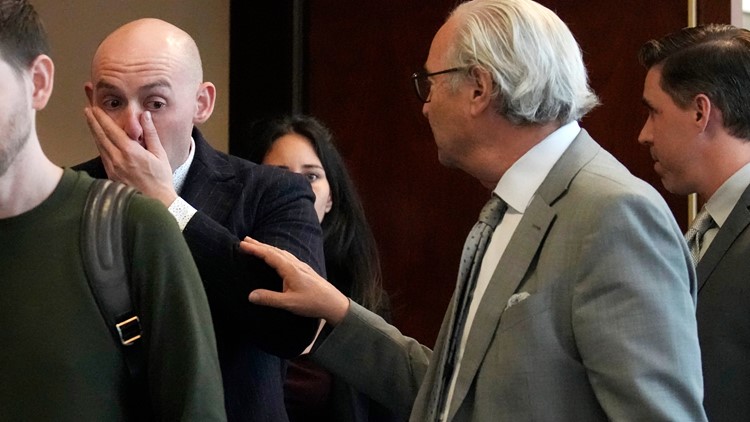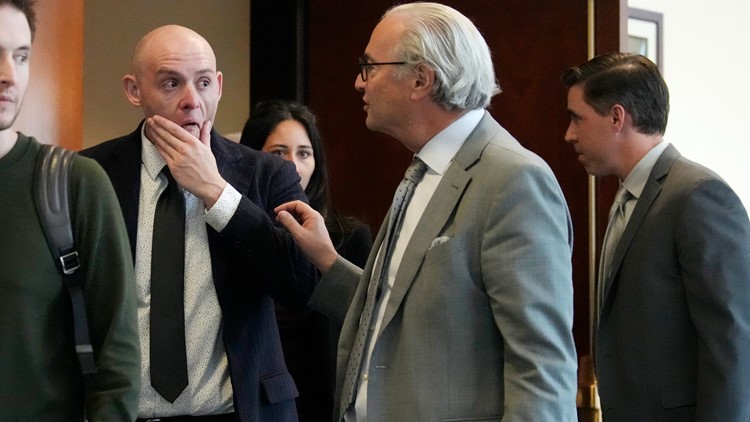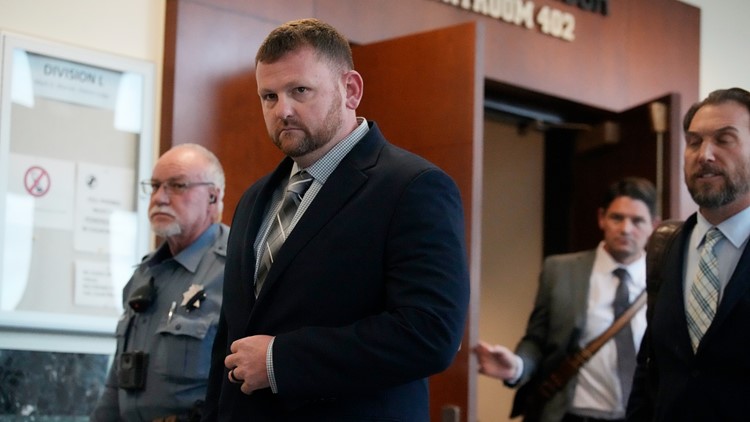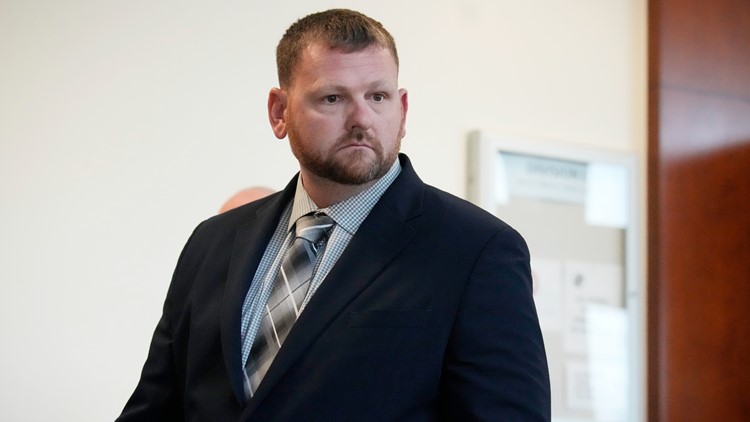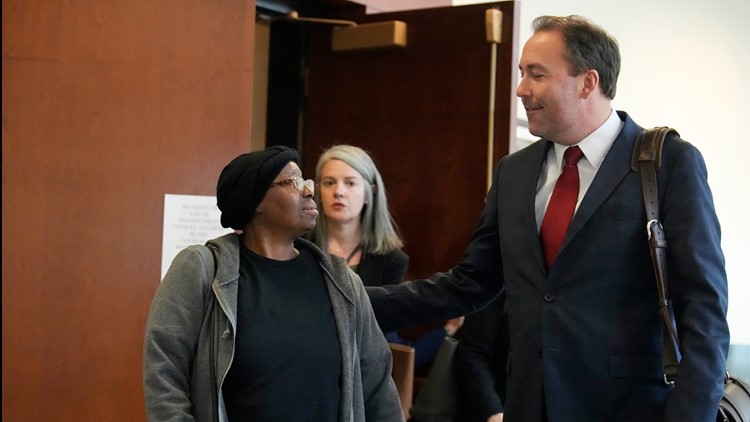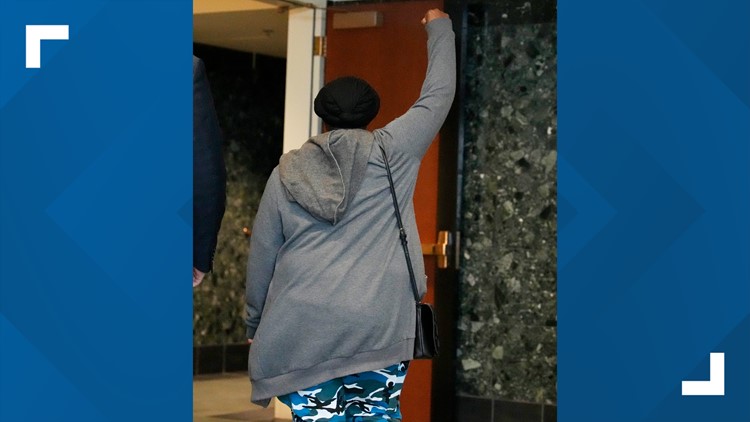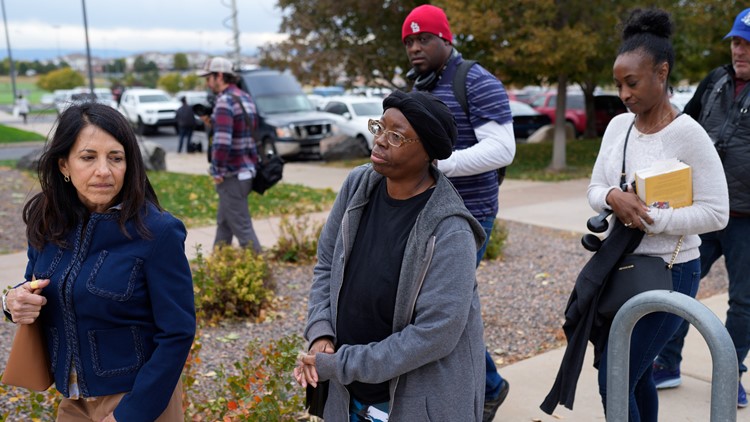AURORA, Colo — An Adams County jury reached a split verdict Thursday and convicted one of two Aurora officers who were indicted in connection with the 2019 death of Elijah McClain.
The jury convicted Randy Roedema of criminally negligent homicide and third-degree assault. He had faced a more serious charge of reckless manslaughter, but the jury convicted him of criminally negligent homicide instead, a lower-class felony that carries a lesser sentence.
"It’s not enough, cause Roedema wasn't alone in what he did to my son. He had buddies with badges who are all bullies. This is not a victory for me at all," said Sheneen McClain, Elijah McClain's mother.
The same jury found Jason Rosenblatt not guilty of both counts he faced, which were reckless manslaughter and second-degree assault. He is no longer POST certified and currently cannot work as a law enforcement officer in Colorado. However, now that he's been acquitted, he could serve as an officer again if he completes the certification renewal process.
Upon his conviction Roedema, who had been suspended, was terminated, according to a City of Aurora spokesperson.
Roedema is set to be sentenced on Jan. 5 at 1:30 p.m. The third-degree assault charge carries a maximum penalty of 364 days in jail. The criminally negligent homicide charge carries a presumptive range of between one and three years. That range could go up to two to six years if the judge finds special aggravating factors. If Roedema had been convicted on the more serious charges he could have faced a maximum of 16 years in prison.
"Elijah told me not to worry," Sheneen McClain said. "Because this is not the final destination. This is just human judgment. It helped that he told me not to worry because they have an eternal judgment that they have yet to see. And no matter how they try to clean their slate, they still have my son's blood on their hands."
Opening statements in the trial for Roedema, who was suspended, and Rosenblatt, a former officer, were on Sept. 20. Jurors began deliberations late Tuesday afternoon after both sides rested Oct. 6 without the defense calling any witnesses.
McClain, 23, was first contacted on Aug. 24, 2019, after a teenage boy called 911 and relayed that he saw McClain wearing a coat and mask and acting "suspicious." Less than a minute after police arrived, McClain was taken to the ground and engaged in a struggle with Roedema, Rosenblatt, and a third officer. During that struggle, McClain was placed in a carotid hold, which can cut off the oxygen supply to the brain.
Later that same night, paramedics injected McClain with the sedative ketamine. His heart stopped, and he later died.
Verdict in the trial for 2 Aurora officers in Elijah McClain's death
Following the verdict, Aurora interim Police Chief Art Acevedo said in a statement:
“I know many have been waiting a long time for the involved parties to have their day in court. As a nation, we must be committed to the rule of law. As such, we hold the American judicial process in high regard.
We respect the verdict handed down by the jury and thank the members of the jury for their thoughtful deliberation and service. Due to the additional pending trials, the Aurora Police Department is precluded from further comment at this time."

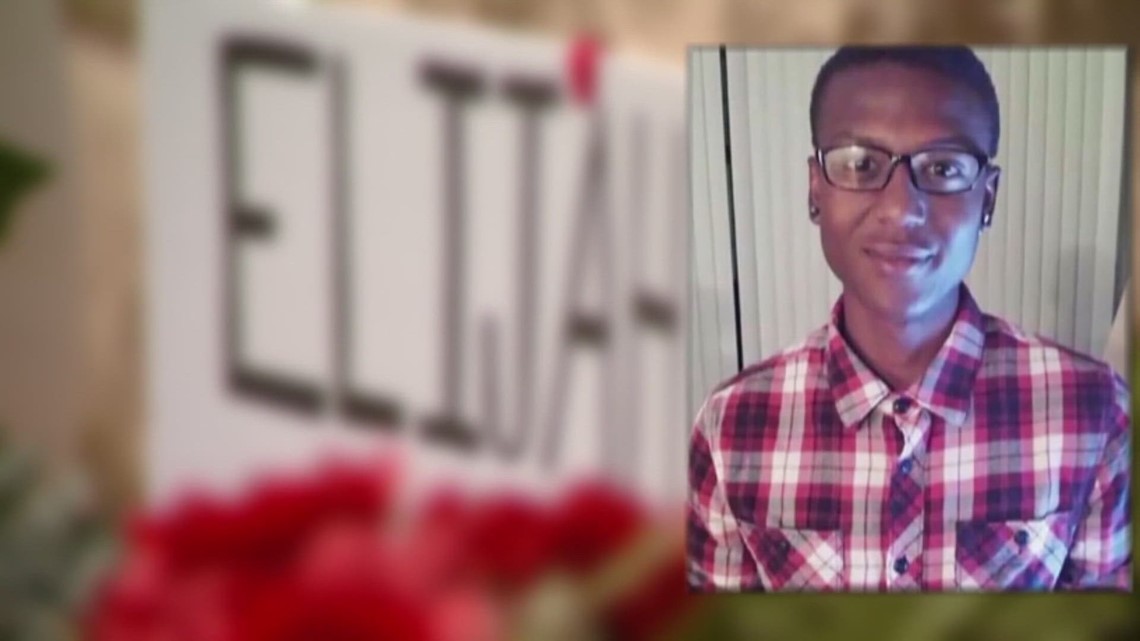
Aurora Fire Rescue's Chief Alec Oughton said in a statement, “What we will share at this time is our thoughts and prayers go out to everyone impacted by this event. The stress they have suffered over the past four years as they seek healing and closure is unimaginable.
"Additionally, the court has precluded the city and our department from commenting on the facts and circumstances of the incident while these proceedings are pending. We respect the rule of law and the outcomes of the cases."
Watch below: Judge Mark Warner reads the verdict.
During the trial, jurors heard from several medical experts who testified that McClain's condition worsened from the time when he was first contacted by officers and taken to the ground but before he was injected with ketamine by paramedics.
The experts testified that McClain vomited numerous times. At least one time, they said, he was still wearing the ski mask when he threw up.
They testified that during the struggle with officers, while he was handcuffed and on the ground, McClain began to suffer from various medical conditions. Those included low oxygen and a buildup of acid in the blood, known as acidosis.
They attributed those conditions to the physical exertion from the struggle and McClain's inability to breathe properly. They also said that McClain aspirated, which in this case, meant he inhaled his own vomit into his lungs. That made it even more difficult for him to breathe, according to court testimony.
Together, the experts said those conditions put McClain in an extremely vulnerable condition before he was injected with ketamine. One expert, Dr. David Beuther, a pulmonologist with National Jewish Health, told the jurors that McClain was "minimally responsive" in the minutes before he received ketamine.
Jurors also heard about the policies and directives of the Aurora Police Department.
Use of force and training expert, Dr. Marc Brown told jurors over and over again during this testimony that Roedema and Rosenblatt's actions were "inconsistent" with the department's policies and directives he reviewed.
Brown was asked whether, once McClain was on the ground, officers followed the department policy to de-escalate when "practical." He testified that he did not believe they did.
"During the restraint period when Mr. McClain was handcuffed, the struggle is essentially over," he said. "There was pain compliance, wrist compression. Officer Roedema, on camera, put his knee in his back."

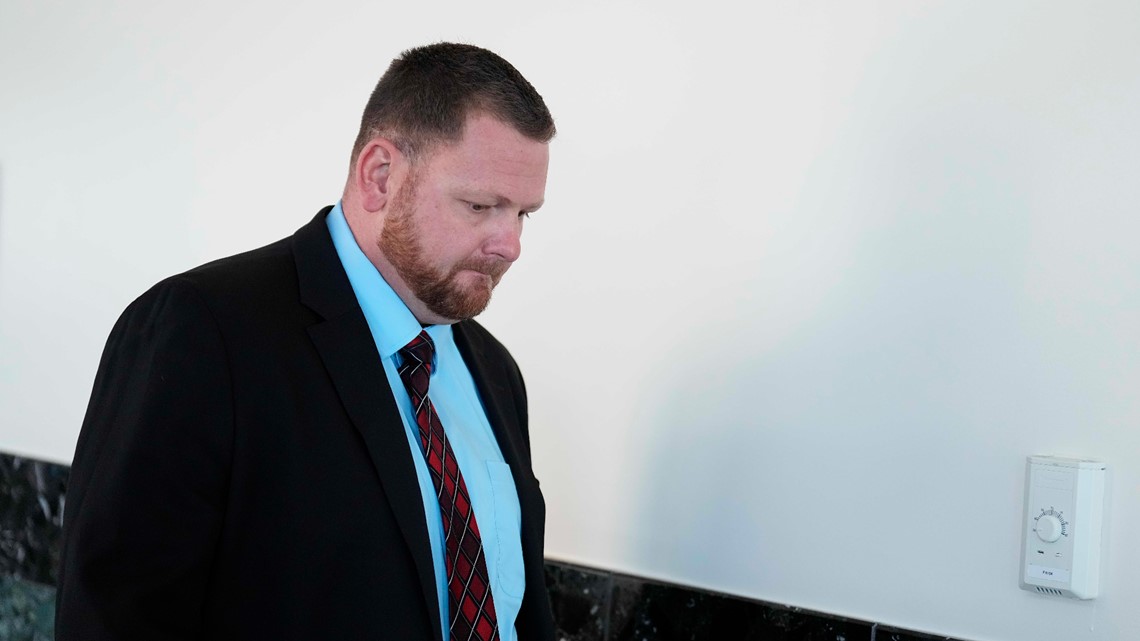
Brown also testified that he did not believe the officers monitored McClain properly, as required under policy, after he was placed in a carotid hold which caused him to briefly lose consciousness.
Defense teams for Roedema and Rosenblatt did not call any witnesses. They maintain the officers acted appropriately and said their force was used as a result of decisions made by McClain. They suggested that McClain grabbed for Rosenblatt's gun, something prosecutors dispute. They also said McClain was actively resisting officers while on the ground and handcuffed.
"Did you rule out for purposes of causation of death that maybe Mr. McClain's own conduct caused him to die?" Reid Elkus, an attorney for Roedema, asked Beuther.
"No," Beuther said. "That would be inappropriate for a medical doctor to comment on people's intentions and how some event happened. That seems like more of a law enforcement or legal expert would be required for that."

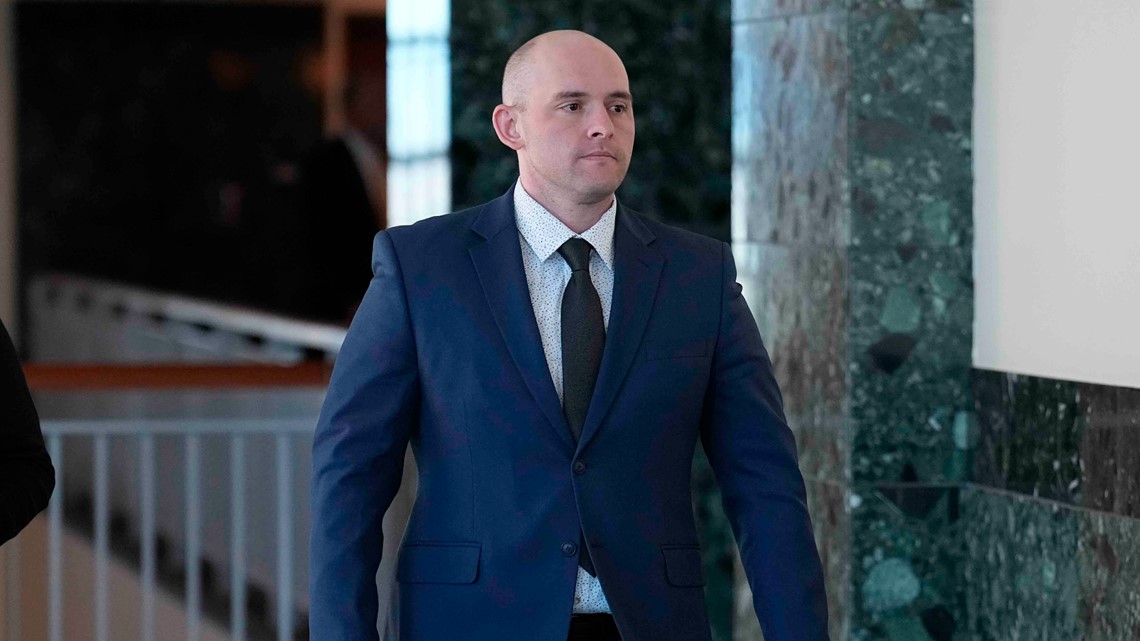
They also maintain that the paramedics, who injected McClain with ketamine are solely responsible for his death. They pointed out that three different medical experts agreed that ketamine was the primary cause of McClain's death.
Prosecutors have asserted that McClain's weakened condition, which resulted from the 15-minute struggle with officers, put him at extreme risk for adverse effects from the sedative.
"In my opinion, it [ketamine] was not the only factor in his death," Beuther said. "It was the aspiration into the airway, it was the acidosis, it was also the position he was put in that reduced his ability to cough, clear his airway or breathe inadequately."
Roedema and Rosenblatt were among five people indicted in 2021 in connection with McClain's death.
"Today, the jury returned a guilty verdict against one of the defendants," Attorney General Phil Weiser said in a statement. "I’m deeply grateful for our team’s hard work and dedication on this case. We have two more trials to prosecute, and I know the teams handling those cases will bring their best efforts as well.
"Today’s verdict is about accountability; everyone is accountable and equal under the law. And hopefully, today’s verdict is another step in the healing process for the Aurora community and the state. I recognize that some people may not agree with the verdict, but we all must respect the jury system, which is a pillar of our democratic republic."
Jury selection begins Friday for the trial of Nathan Woodyard, the first patrol officer to respond to the scene and contact McClain. He's charged with reckless manslaughter.
Jeremy Cooper and Peter Chichuniec, the paramedics who responded to the call, are set for trial in November. They are each charged with reckless manslaughter and numerous counts of assault.
SUGGESTED VIDEOS: Elijah McClain death

